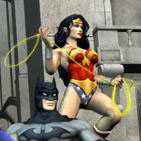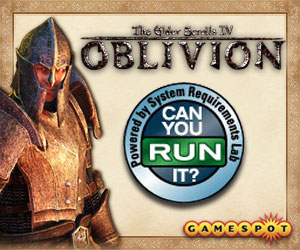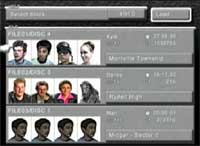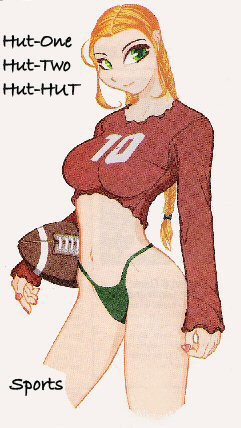I blogged about my mixed feelings regarding E3’s crackdown on booth babes a while ago, but it seems the ambiguous wording has caused some problems. Kasey Poteet, a VJ for MusicPlusTV, decided to put the policy to the test by dressing up as Wonder Woman.
I. Against the rules? By the rules? What ARE the rules, anyway?
If you’re wondering what Wonder Woman costume would merit being kicked out but don’t want to watch the film, you can see a screenshot of Kasey’s outfit here:
Inappropriate?
At first glance I could have told you that E3 would deem her attire inappropriate, seeing as she has on what amounts to a sparkly bathing suit. But, given the ambiguity of the rules I personally have seen, I believe her claim that she read through all the handbook carefully before deciding on her outfit.
What she says next, however, really sticks with me [emphasis mine]:
I would also like to point out that, uh, I am representing a game that they are showing here, wearing more clothes than the character from the game. And yet I’m still inappropriate to minors, which aren’t even allowed to be in the show. From what I understand it says 18 and over.
I’m going to address the latter point first, as I think it illustrates the weakness of using minors as a shield. If E3 allowed people under the age of 18 in, then it might carry more weight. I mean, while I’m not sure I personally agree, I can see the logic behind trying to stay away from “adult” themes and materials during an event that is attended by a lot of minors.
Putting off the discussion on whether or not a Wonder Woman costume is “adult” themed or not for the moment, I think that saying that claiming the dress code violation is offensive to children erases the entire reason behind the offense. The point is not — or at least I don’t think it should be — that sexuality, or sexiness is wrong or whatever, but rather that the abuse of booth babes was taking the focus away from the game by using women as sexual objects.
Which leads me to my next point…
II. Good for the game, not for the cosplayer?
 Another issue that has been overlooked by E3’s ban on booth babes, and apparently any woman atendee whom they deem inappropriate, is that it severely limits women’s ability to cosplay as female characters. Especially female characters in upcoming games.
Another issue that has been overlooked by E3’s ban on booth babes, and apparently any woman atendee whom they deem inappropriate, is that it severely limits women’s ability to cosplay as female characters. Especially female characters in upcoming games.
Kasey’s costume was a pretty typical Wonder Woman costume. The one my sister wore for Halloween a few years ago wasn’t much different, in fact. I’m not sure if the featured game was Justice League: Heroes or not, but I’ve included a screencap of Wonder Woman from that on the left. No matter what incarnation — including the one with the skirt — Wonder Woman has always worn a glorified bathing suit.
Other popular characters like Lara Croft, Rayne, even Rikku from Final Fantasy X-2 would be banned from potential cosplay lists given E3’s rules, too. While there are undoubtedly male characters, such as Conan or perhaps the Hulk, that are similarly limited, the laundry list of usual suspects isn’t nearly as long. In fact, I was kind of grasping for the two I mentioned.
I wish Kasey had given more airtime to her comment about how her costume wasn’t any worse, and perhaps showed less skin, than that of Wonder Woman in the game. This is an issue that has gotten swept under the rug by the language E3 has chosen to employ in its rules. If these kinds of costumes are inappropriate for the people attending the convention, then why are they acceptable in their showcased games? Why does E3 allow games that create these kinds of characters that are inappropriate to cosplay in their non-adult games?
III. Wonder Woman: Crusader for justice or perpetuator of raunch culture?
I don’t know how I feel about Kasey’s stance on all this. While trying to find more clips of her show, I checked out her profile on MusicPlusTV and MySpace. She’s out there being a VJ, which I think is cool. She took a stance and stuck to it; also cool.
What bugs me, though, is that she pushes herself as sexy first and a geek second. To clarify:

- She seems to cosplay as “sexy” characters on her show. From the two clips I could find, she cosplays in outfits that show off her figure. Okay, given what I said in Section II of this post, that in itself is not so surprising. Nor something I can get overly grumpy about, although I’d feel better if I knew that her male co-host also did the cosplay thing.
- The vast majorities of pictures of her that I saw were of her naked, partially naked, and/or in erotic poses. She’s a model, so she’s obviously proud of her body and it makes sense that she’d want to show it off. She’s also into fighting sexual censorship, which I admire, but I personally don’t think that her approach gainfully combats a sex negative society. Especially given the way that geek culture already objectifies fictional women as well as real geeks who happen to be women.
- She projects a ditzy persona.This last point probably pisses me off the most. Even her having a bubbly personality doesn’t explain her saying things like “[sometimes I’m] WAAAAAAY to thinky,” and just in general downplaying the intelligent woman that I’m convinced that she is.
Bringing that over to her activism at E3, I must admit that I was at first annoyed. I thought to myself, “Did she honestly think they were going to let her in???” But, having watched the clip and sat and thought about the issue, I don’t really think she did. I think her entire point was to bring light to this issue.
I don’t know if there was more discussion on this outside of the clip, or if it was brought up in a later episode. Because of that, I don’t know exactly what angle she was approaching it from. Given her brand of activism, I think part of it might be from the, “Look, they’re barring women who want to do this from doing it!” And I both agree and disagree with that sentiment — something to be discussed in further detail at a later date, although I will say that I find the way in which E3 has chosen to approach this issue as troublesome (ya think?).
I also think that she wanted to bring to light the hypocrisy of E3’s attitude towards real women versus their silence of the women they allow to be showcased in the games. At least, that’s what her one line about Wonder Woman’s in-game costume conveyed to me. Seeing as, you know, I ended up writing a lengthy post on the matter.
Overall, I’d have to say that despite not agreeing with the way in which Kasey conducts her politics, I am glad that she took a stand. I’m glad that her stand was passed around the internet and that I found it.
IV. Conclusion
Bringing things back to the original issue, about E3 and its ambiguous line about “appropriate” oufits… Wonder Woman is not rated M for mature. She’s not sexually explicit. What she, and Lara, and Rayne, and even friggin Rikku, are is objectified. For good, ill, or neutral, that’s the lot of most video game women. Up until this year, real women were dressing up in the same manner that the video game creators dressed up these characters. Because of this they, too, were objectified.
And E3’s enforcement of the dress code has done nothing to address this root cause. In fact, I’d go farther to say that it has covered it up like some dirty little secret. When the announcement to ban booth babes was first made, I was skeptical. And, I think this incident has caused me to realize why: the lack of booth babes at E3 has done nothing to change the boy’s club of video games, nothing to fight or even address the ever-present objectification of women, and in the end amounts to nothing but them becoming hypocritical moral police of what women can and can’t wear.
Via When Fangirls Attack.


 Another issue that has been overlooked by E3’s ban on booth babes, and apparently any woman atendee whom they deem inappropriate, is that it severely limits women’s ability to cosplay as female characters. Especially female characters in upcoming games.
Another issue that has been overlooked by E3’s ban on booth babes, and apparently any woman atendee whom they deem inappropriate, is that it severely limits women’s ability to cosplay as female characters. Especially female characters in upcoming games.



 As is traditional with Squaresoft games, continuing a game in Ultimate Utopia will lead you to a character selection screen. The names for the three games are, respectively, Kyle, Danny, and Man. Kyle’s game has the characters we will learn to know and love, while Danny’s game seems to represent Grease (the area is called “Rydell High”), and Man’s game plays on the lack of diversity of Square’s NPCs – as all the characters in it are Man himself.
As is traditional with Squaresoft games, continuing a game in Ultimate Utopia will lead you to a character selection screen. The names for the three games are, respectively, Kyle, Danny, and Man. Kyle’s game has the characters we will learn to know and love, while Danny’s game seems to represent Grease (the area is called “Rydell High”), and Man’s game plays on the lack of diversity of Square’s NPCs – as all the characters in it are Man himself. As this flash movie is as much a parody of Squaresoft as it is a tribute, I was not surprised to find that Megan is the stereotypical magic user. Not just any magic user, however, but the physically weak healer. Her HP is a staggeringly low 191, as compared to the others who have anywhere from 954 to 1023. As the healer, her MP is the highest: 360, as compared to 54 (the highest MP next to hers). Her weapon of choice? The staff. It does 12 damage, yay!
As this flash movie is as much a parody of Squaresoft as it is a tribute, I was not surprised to find that Megan is the stereotypical magic user. Not just any magic user, however, but the physically weak healer. Her HP is a staggeringly low 191, as compared to the others who have anywhere from 954 to 1023. As the healer, her MP is the highest: 360, as compared to 54 (the highest MP next to hers). Her weapon of choice? The staff. It does 12 damage, yay!
